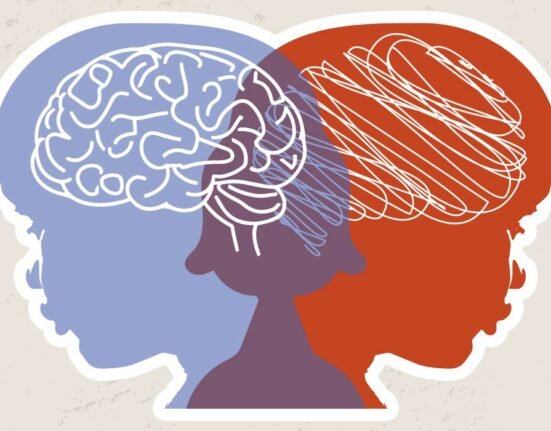Due to the readily available knowledge at their fingertips, a rising number of people mistakenly classify themselves or others as having different mental conditions. BPD and Emotionally Sensitive is no exception. People who are not qualified medical professionals sometimes mistakenly link this disease to being very sensitive to emotional cues.
The moods, self-image, and behaviour of those with borderline personality disorder (BPD) are consistently unstable. These symptoms often lead to impulsive actions and relationship problems. They may experience extreme episodes of anger, depression, and anxiety lasting from a few hours to days. It is also called as “Emotionally Unstable Personality Disorder”. This makes it obvious that most individuals diagnosed as having Borderline Personality Disorder. Will also be emotionally sensitive, even though it is not a pre-requisite for the diagnosis.
Individuals with borderline personality disorder also have a tendency to see things in extremes, such as all good or all bad. The opinions that they have of other people usually change quickly. With borderline personality disorder, a person may regard someone as a friend one day and an adversary or traitor the next. These ever-changing mental states can lead to intense and unstable relationships. Although it also affects a lot of men, doctors often identify this illness in women.
Common symptoms that help in diagnosis include:
- A pattern of unstable, but intense relationships, often swaying from extreme intimacy and love to extreme hate or anger.
- Fear of abandonment, followed by efforts to avoid desertion, such as quickly starting intimate (physical or emotional) relationships or stopping communication with somebody in expectation of being abandoned
- Inaccurate and unstable self-image
- Impulsive and repeated dangerous behaviours
- Chronic feelings of emptiness
- Self-harming behaviour
- Recurring thoughts of suicidal behaviours or threats
- Intense and highly changeable moods, with each episode lasting from a few hours to a few days
- Inappropriate, intense anger
- Difficulty in trusting, which is sometimes accompanied by irrational fear of other people’s intentions
- Feelings of dissociation
Different people with Borderline personality may have different symptoms, while some may not have all of them. Typical everyday events can trigger symptoms of the disorder. For example, they may become troubled over trivial goodbyes from people to whom they feel close, such as traveling on business trips.

Loved ones are not the only ones finding it difficult to understand what is happening. When someone with BPD reacts with intense emotions apparently out of nowhere. People with BPD may be oblivious of the trigger, too. Being emotionally sensitive leads them to react to subtle cues and reactions. We can think of people with BPD as having their emotional nerve endings exposed. Which causes them to be intensely affected by anything emotional. Emotional sensitivity, though common, is not a pre-requisite for the diagnosis of BPD.
Individuals with BPD aren’t just genetically vulnerable to emotions; they may have also grown up in an “invalidating environment.” So, they might have never learned how to regulate their emotions. Their emotions might have been continuously ignored and dismissed which might have manifested as symptoms of BPD.
People with BPD also have a hard time calming down and stay upset longer than others without the disorder. And there’s interesting evidence to back this up. “In a person with average emotional intensity, an emotion fires in the brain for around 12 seconds. There is evidence that in people with BPD emotions fire for 20 percent longer” (Tartakovsky, 2018).
A patient with BPD not only react with intense emotions, but their behavior is also extreme and doesn’t match the situation. They might scream in public, sleep for days together or self-harm. People spread the unfortunate notion that those with BPD are cunning and unreliable, and that their theatrical behaviour is really an effort to attract attention. Instead, research has suggested that people with BPD have a difficult emotional baseline. If normal people’s emotional baseline on a scale of 0 to 100 is 20, then people with BPD are continuously at 75.
What can exaggerate their reactions are the secondary emotions of remorse and embarrassment. Since they know that “their emotions are out of control”. For example, if their partner is angry. “On top of the original anger, these secondary emotions feel intolerable and their fear of all this emotion, ironically, tends to fire off another series of emotions—perhaps anger that is now shifted to self for ‘not helping’ their loved one or for some other unexpressed reason.” Fear of abandonment also adds on to the complicated intense emotion.
It is important to note that though many people with BPD may be highly emotionally sensitive, not all people with emotional sensitivity have BPD. Being emotionally sensitive is not synonymous to having Borderline personality disorder. Emotional sensitivity is just one of the many symptoms of BPD. Personality disorder has many other characteristic symptoms that will be missing in a person who is only emotionally sensitive.
Because of all the emotional drama that accompanies people with BPD, there is a myth surrounding them that they are unbearable and are not capable of love. However, it is important to note that people with BPD are as deserving of love as anybody else, if not more. Also, it is important to remember that people with BPD do get better and simply need to learn the skills of managing their emotions. While dialectical behaviour therapy (DBT) is very effective in treating people with BPD, it does involve significant effort and hard work.
Loved ones can help by doing simple things like assessing the situation, and listening actively (without contradicting, judging or saying that he or she is overreacting). They can also create an environment that aids validation. Also give them space while keeping in mind that the emotions of emotionally vulnerable people last longer!













Leave feedback about this